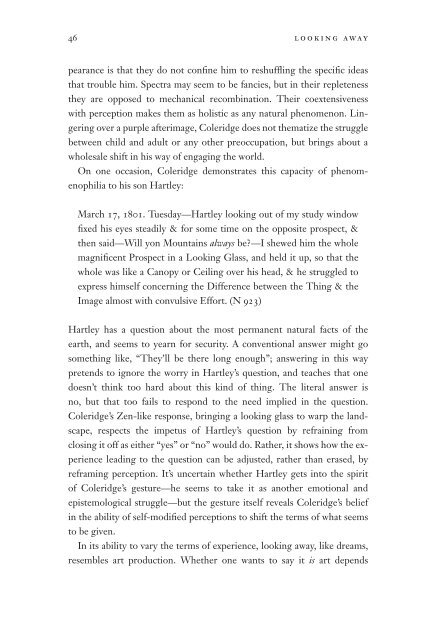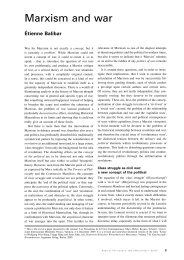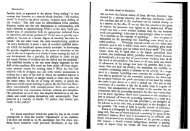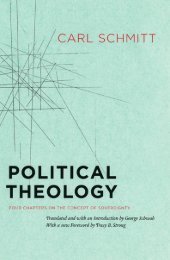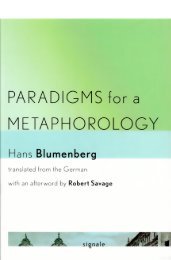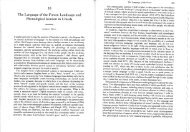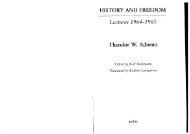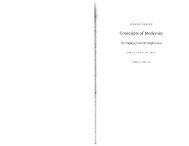Terada - Looking Away (Selections).pdf - Townsend Humanities Lab
Terada - Looking Away (Selections).pdf - Townsend Humanities Lab
Terada - Looking Away (Selections).pdf - Townsend Humanities Lab
You also want an ePaper? Increase the reach of your titles
YUMPU automatically turns print PDFs into web optimized ePapers that Google loves.
46 looking away<br />
pearance is that they do not confine him to reshuffling the specific ideas<br />
that trouble him. Spectra may seem to be fancies, but in their repleteness<br />
they are opposed to mechanical recombination. Their coextensiveness<br />
with perception makes them as holistic as any natural phenomenon. Lingering<br />
over a purple afterimage, Coleridge does not thematize the struggle<br />
between child and adult or any other preoccupation, but brings about a<br />
wholesale shift in his way of engaging the world.<br />
On one occasion, Coleridge demonstrates this capacity of phenomenophilia<br />
to his son Hartley:<br />
March 17, 1801. Tuesday—Hartley looking out of my study window<br />
fixed his eyes steadily & for some time on the opposite prospect, &<br />
then said—Will yon Mountains always be?—I shewed him the whole<br />
magnificent Prospect in a <strong>Looking</strong> Glass, and held it up, so that the<br />
whole was like a Canopy or Ceiling over his head, & he struggled to<br />
express himself concerning the Difference between the Thing & the<br />
Image almost with convulsive Effort. (N 923)<br />
Hartley has a question about the most permanent natural facts of the<br />
earth, and seems to yearn for security. A conventional answer might go<br />
something like, “They’ll be there long enough”; answering in this way<br />
pretends to ignore the worry in Hartley’s question, and teaches that one<br />
doesn’t think too hard about this kind of thing. The literal answer is<br />
no, but that too fails to respond to the need implied in the question.<br />
Coleridge’s Zen-like response, bringing a looking glass to warp the landscape,<br />
respects the impetus of Hartley’s question by refraining from<br />
closing it off as either “yes” or “no” would do. Rather, it shows how the experience<br />
leading to the question can be adjusted, rather than erased, by<br />
reframing perception. It’s uncertain whether Hartley gets into the spirit<br />
of Coleridge’s gesture—he seems to take it as another emotional and<br />
epistemological struggle—but the gesture itself reveals Coleridge’s belief<br />
in the ability of self-modified perceptions to shift the terms of what seems<br />
to be given.<br />
In its ability to vary the terms of experience, looking away, like dreams,<br />
resembles art production. Whether one wants to say it is art depends


